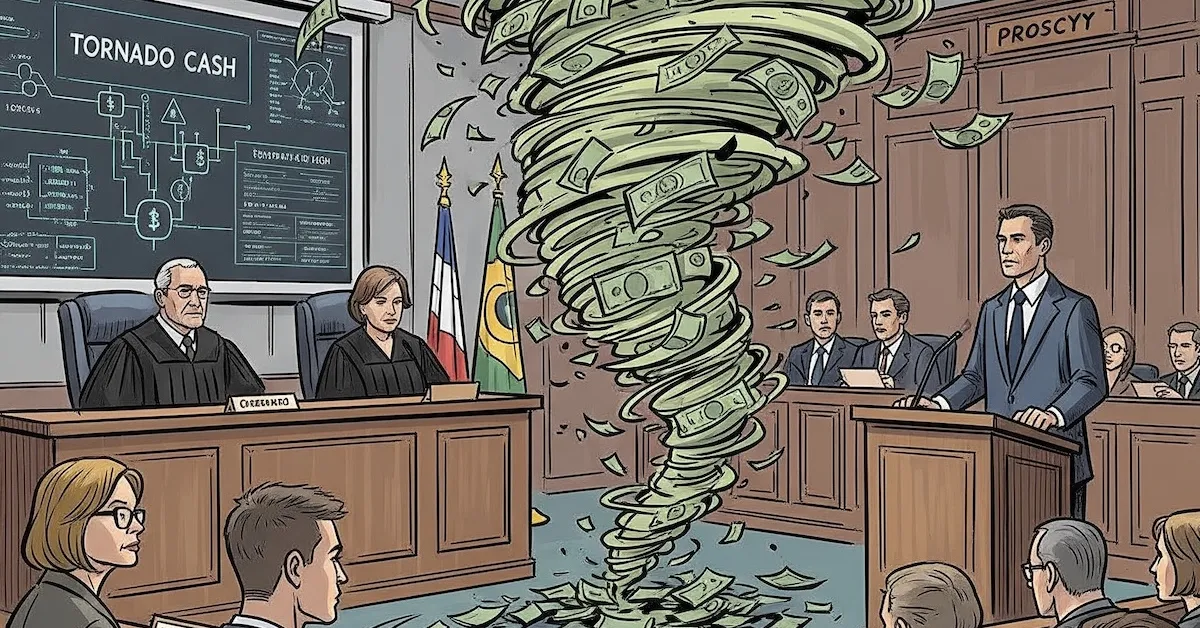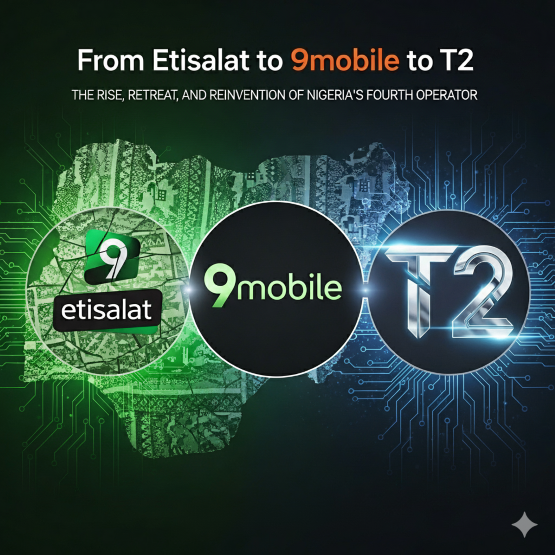Roman Storm's Fate Sealed: Tornado Cash Trial Verdict Rocks Crypto World

The Tornado Cash trial has drawn significant attention due to its far-reaching implications for developers of noncustodial Bitcoin and crypto technology, as well as privacy-preserving software. Amanda Tuminelli, executive director and chief legal officer for the DeFi Education Fund, highlighted these high stakes, viewing the case as pivotal for the crypto space.
Roman Storm, a co-founder of Tornado Cash, faced three charges, with particular scrutiny on the accusation of conspiracy to operate an unlicensed money transmitting business. Tuminelli, an expert on 18 U.S. Code § 1960—the federal law prohibiting unlicensed money transmission—argued that Storm's creation and operation of Tornado Cash, an Ethereum-based crypto mixing service, did not violate this statute. The discussion also brought to light legislative efforts like the CLARITY Act and the Blockchain Regulatory Certainty Act (BRCA), which include provisions designed to protect developers of "non-controlling" (noncustodial) crypto technology from needing money transmitting licenses or being subject to existing transmission laws.
Further complicating the legal landscape, Tuminelli pointed out that the Department of Justice's (DoJ) recent shift away from its 2019 FinCEN guidance threatens innovation within the crypto sector. This policy change, she warned, could pave the way for the U.S. government to continue prosecuting developers like Storm, despite an April memo from U.S. Deputy Attorney General Todd Blanche indicating that the DoJ would cease targeting crypto entities, including mixing and tumbling services, for the actions of their end users. The DeFi Education Fund actively participated by writing and submitting amicus briefs to the courts for both the Tornado Cash and Samourai Wallet cases, although the brief for the Tornado Cash case was ultimately rejected.
The trial culminated with Roman Storm being found guilty on the second count of his indictment: conspiracy to operate an unlicensed money transmitting business. This verdict was delivered in the Southern District of New York (SDNY) after three and a half days of jury deliberation, following a trial that commenced in the middle of the previous month. The jury, however, did not reach a unanimous verdict on the other two charges—conspiracy to commit money laundering and conspiracy to violate sanctions.
Following the guilty verdict on the money transmission charge, Storm now faces a potential prison sentence of up to five years. The prosecution promptly moved to remand Storm into custody, asserting he was a flight risk. However, Judge Failla rejected this motion. The defense argued that Storm had minimal incentive to flee, citing his Washington state home tied to a $2 million bail bond, his daughter and girlfriend residing in the U.S., his parents being green card holders, and the substantial U.S.-based crypto community supporting him. Judge Failla acknowledged that Storm's "incentives have shifted tremendously" but denied the motion, stating that the "stability of the verdict is still in play," likely referring to the likelihood of an appeal.
Shortly after the verdict, U.S. Attorney for the SDNY, Jay Clayton (also a former U.S. Securities and Exchange Commission chair), issued a statement. Clayton asserted that "Roman Storm and Tornado Cash provided a service for North Korean hackers and other criminals to move and hide more than $1 billion of dirty money." He emphasized that the promise of digital assets "cannot be an excuse for criminality" and that the Office is "committed to holding accountable those who exploit emerging technologies to commit crime." Notably, Clayton's statement made no mention of Deputy Attorney General Todd Blanche's memo, which pledged that the U.S. Department of Justice would cease "regulation by prosecution" in the crypto space. Furthermore, Clayton did not acknowledge that the vast majority of funds transacted through Tornado Cash users were not proven to have been obtained illicitly, highlighting a contentious aspect of the prosecution's narrative.
You may also like...
From Etisalat to 9mobile to T2: The Rise, Retreat, and Reinvention of Nigeria’s Fourth Operator

From a meteoric rise to a challenging retreat, Etisalat Nigeria’s evolution into T2 tells a story of resilience, wins, a...
Boxing Blockbuster: Jake Paul and Gervonta Davis Set for November Showdown

In a surprising announcement, Jake Paul is set to face WBA lightweight champion Gervonta "Tank" Davis in an exhibition b...
Carabao Cup Shocker: Grimsby Stuns Man Utd in Penalty Thriller

Manchester United suffered a shocking Carabao Cup exit after losing 12-11 on penalties to League Two side Grimsby Town. ...
Venice Stunner: Paolo Sorrentino's 'La Grazia' Captivates Critics with Record-Breaking Ovation!

Paolo Sorrentino's new film “La Grazia” opened the Venice Film Festival to critical acclaim, presenting a nuanced portra...
The Hunt for 007: Frontrunners Out, Legends Back, New Details Emerge in Bond Saga!

The search for the next James Bond intensifies as actors like Taron Egerton and Glen Powell rule themselves out, while M...
Reading and Leeds Festival Plunged Into Chaos by Secret Set Leaks and Star's Last-Minute Snub

Reading and Leeds Festival 2025 is buzzing with fan speculation about secret sets from The Foo Fighters and Chase & Stat...
Naira Marley Breaks Silence on Mohbad's Death Amid Mounting Controversy

Musician Naira Marley has publicly addressed the controversial death of his former signee, Mohbad, sharing his side of t...
Pete Davidson's Paternal Bliss: Comedian's Dream of Fatherhood Comes True with Elsie Hewitt

Comedian Pete Davidson and model Elsie Hewitt are expecting their first child, announced via Instagram by Hewitt. Davids...